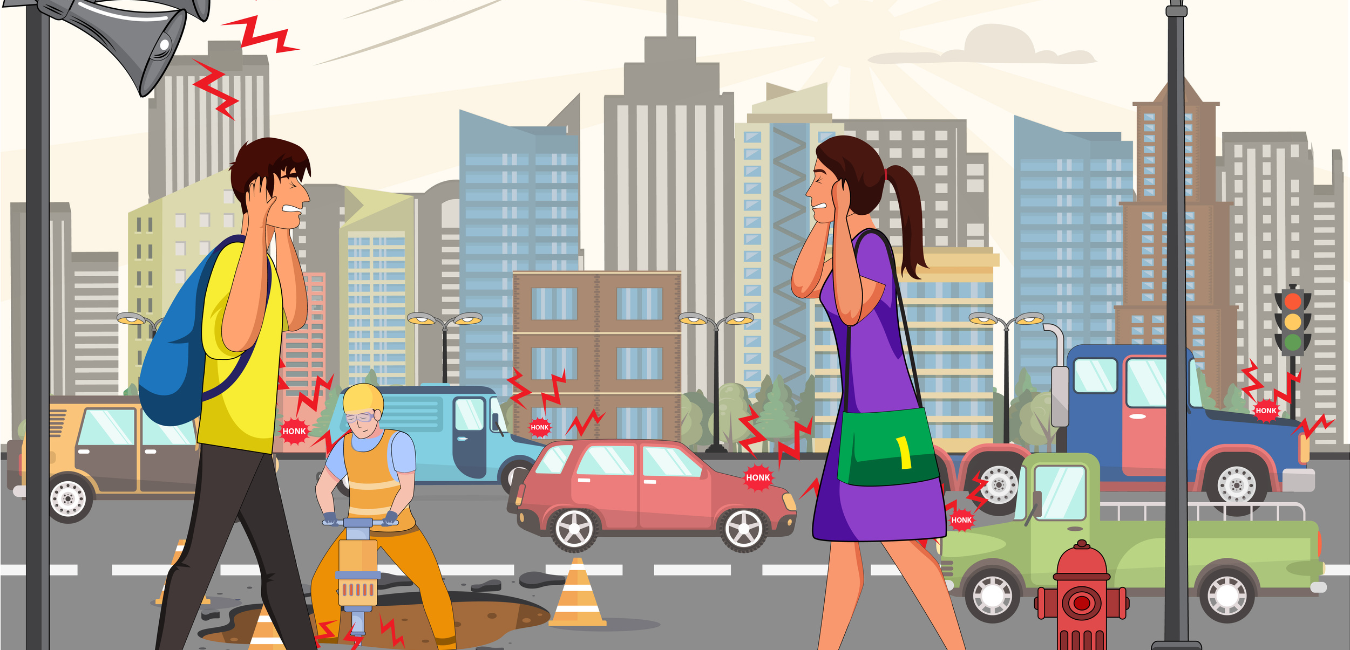Understanding the Link Between Hearing Loss and Dementia
The world is a busy and fascinating place. We take it all in with each of our senses, processing the sights, smells, sounds, and tastes of our surroundings using our brain and it’s amazing cognitive abilities.
Each one of our senses helps improve our life experience, helping us learn and grow–but what if we were deprived of one or more of these senses?
While people function every day without the ability to see a rainbow or hear the newest hit song, it’s fair to say they are missing out on certain aspects of life. Technology has made some impressive advances, but we have a long way to go in restoring human abilities.
The best ways to keep our senses sharp include:
- Nourishing our brains with unique experiences.
- Attending to our health.
- Remembering that an ounce of prevention is worth a pound of cure.
These are all very important when discussing our brain’s health, namely the conditions that cause cognitive decline, such as dementia. Dementia is a collective term for “the impaired ability to remember, think, or make decisions that interfere with doing everyday activities.”
As we continue to try and understand the causes of dementia and similar health concerns, doctors have made a link between hearing loss and dementia, stating cases of severe hearing loss may contribute to the likelihood of dementia development.
A Johns Hopkins study found that those with mild hearing loss doubled their risk of dementia, while moderate hearing loss tripled it, and severe loss showed an increased risk of five times as likely compared to those without impairment.
How does hearing loss contribute to the increased risk of dementia?
While there is no definite answer regarding the connection between hearing loss and dementia, a few things are clear.
First, our ears are stimulated by the eighth cranial nerve, known as the Cochleovestibular nerve. Its job is to communicate sound and spatial position to the brain, giving us our ability for hearing and balance. Injury to this nerve can result in hearing loss and balance disorders.
Second, additional hearing loss risk factors include age, loud noise exposure, illness, genetics, and particular medications.
Third, hearing loss can have a wide range of negative impacts on your life, including struggles with communication and impaired cognitive abilities.
While research is still examining the link between hearing loss and dementia, it’s still unclear which causes the other, if at all. Brain scans have shown that hearing loss may contribute to accelerated brain atrophy—but why?
Since we rely on our brains to make sense of the sounds our ears detect, it challenges our brains to think, process, and generally function. Does a lack of sound reduce the challenge to our brains, resulting in a “you don’t use it, you lose it” situation? Or does the impaired grey matter make picking up the sound cues more challenging?
Either way, the inability to hear makes it challenging to engage in meaningful conversations. Competing noises and muffled sounds make processing difficult, resulting in a less enjoyable experience when going to social events, family gatherings, and public places.
This form of hearing loss may cause those experiencing it to withdraw from social functions, leading to feelings of isolation and depression.
A 2021 study at the University of Oxford demonstrated that those struggling to hear spoken conversation amidst ambient noise were upward of a 91% increased dementia risk.
As one worsens, the others tend to as well. People experience a more significant loss of hearing and an increase in cognitive difficulties that are hard to treat and come back from.
Prevention: Where to Start?
As mentioned, prevention is easier than treatment. Preventing hearing loss relies on healthy habits practiced over a lifetime. This means reducing the time and intensity of your noise exposure.
Reduce recreational risk with limited exposure, and for both recreational and occupational exposure, wear appropriate ear protection such as earplugs or earmuffs.
It’s essential to have regular hearing tests, especially as you age. Getting a baseline before problems begin helps to address concerns should they arise with more accurate health information.
Hearing Aids: Can they help?
If your hearing test shows positive results for hearing loss, all is not lost. Hearing aids can help improve how you hear, provide clarity and reduce the cognitive load when processing speech and other sounds.
A 2022 JAMA study conducted a meta-analysis of over thirty studies concluding that hearing aids and cochlear implants were associated with reduced risks of cognitive decline.
While research teams continue to study the validity of these associations, one thing that is agreed upon is that wearing assisted hearing devices can only help. Those who use hearing aids experience notably improved hearing, social interaction, and quality of life.
Too often, patients wait until their hearing loss is significantly reduced before seeking help. The average time between initial loss and professional assistance is ten years, allowing the hearing to deteriorate and health risks to climb.
Avoiding the issues often comes with hearing loss denial, fear of ageing, concerns about technology, and the desire not to sport an auditory aid that may alter their appearance and self-confidence. These concerns should be met with the assurance that hearing devices have come a long way. They are smaller, inconspicuous, and more user-friendly than ever before. With a wide range of options, one should suit your needs, and Hearing Solutions can help.
If you’ve noticed difficulty hearing or understanding letters, sounds, or words, struggle with a need to ask others to speak louder, clearer or repeat themselves, or find you turn the volume of the radio or television to the max, you may be experiencing hearing loss.
A great way to assess your hearing health is to visit one of our trusted professionals at Hearing Solutions. We offer hearing tests, hearing loss solutions, hearing aids, and sound advice you can trust.
Click here to book a free hearing test online, or call us at 1-888-811-9799 to speak with one of our knowledgeable team members today. If you’d like us to contact you, fill out our Quick Contact form, and we will get back to you promptly.
Thank you for trusting us with your hearing healthcare needs.
References:
Centers for Disease Control and Prevention. (2019, April 5). What is dementia? Centers for Disease Control and Prevention. Retrieved March 23, 2023, from https://www.cdc.gov/aging/dementia/index.html
Canada, P. H. A. of. (2022, November 4). Government of Canada. Canada.ca. Retrieved March 23, 2023, from https://www.canada.ca/en/public-health/services/diseases/dementia.html
Johns Hopkins Medicine. (2022, November 1). The hidden risks of hearing loss. Retrieved March 23, 2023, from https://www.hopkinsmedicine.org/health/wellness-and-prevention/the-hidden-risks-of-hearing-loss
Difficulty hearing speech could be a risk factor for dementia. University of Oxford. (n.d.). Retrieved March 23, 2023, from https://www.ox.ac.uk/news/2021-07-21-difficulty-hearing-speech-could-be-risk-factor-dementia
Ehrenfeld , T. (2022, December 7). The connection between hearing loss and cognitive decline. Healthy Hearing. Retrieved March 23, 2023, from https://www.healthyhearing.com/report/52904-The-connection-between-hearing-loss-and-cognitive-decline








